 W
WKarimeh Abbud, was a Palestinian professional photographer and artist who lived and worked in Palestine in the first half of the twentieth century. She was one of the first woman photographers in the Arab World.
 W
WAwni Abd al-Hadi, was a Palestinian political figure. He was educated in Beirut, Istanbul, and at the Sorbonne University in Paris. His wife was Tarab Abd al-Hadi, a Palestinian activist and feminist.
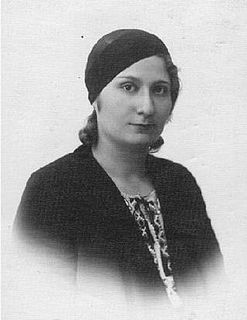 W
WTarab Abdul Hadi, also transliterated Tarab 'Abd al-Hadi, was a Palestinian activist and feminist. In the late 1920s, she co-founded the Palestine Arab Women's Congress (PAWC), the first women's organization in British Mandate Palestine, and was an active organizer in its sister group, the Arab Women's Association (AWA).
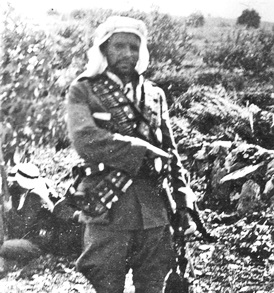 W
WYusuf Sa'id Abu Durra was one of the chief Palestinian Arab rebel commanders during the 1936–39 Arab revolt in Palestine. Abu Durra was a close disciple of the Muslim preacher and rebel Izz ad-Din al-Qassam and one of the few survivors of a shootout between British forces and Qassam, in which the latter was killed. When the revolt broke out, Abu Durra led bands of Qassam's remaining disciples and other armed volunteers in the region between Haifa and Jenin. He also administered a rebel court system in his areas of operation, which prosecuted and executed several Palestinian village headmen suspected of colluding with the British authorities. After experiencing battlefield setbacks, Abu Durra escaped to Transjordan, but was arrested on his way back to Palestine in 1939. He was subsequently tried later that year and executed by the authorities in 1940.
 W
WLabib Hussein Abu Rokan was a Druze Israeli politician who served as a member of the Knesset for Cooperation and Brotherhood between 1959 and 1961.
 W
WAref al-Aref was a Palestinian journalist, historian and politician. Aref al-Aref served as mayor of East Jerusalem in the 1950s, during the Jordanian annexation of the West Bank.
 W
WKhalil Beidas (1874–1949), was a Palestinian scholar, educator, translator and novelist. Beidas was the father of Palestinian Lebanese banker Yousef Beidas and was a cousin of Edward Said's father.
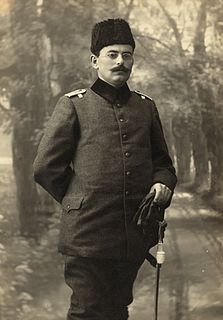 W
WTawfiq Canaan was a pioneering Palestinian physician, medical researcher, ethnographer, and Palestinian nationalist. Born in Beit Jala during the rule of the Ottoman Empire, he served as a medical officer in the Ottoman army during World War I. During British rule, he served as the first President of the Palestine Arab Medical Association founded in 1944, and as the director of several Jerusalem area hospitals before, during, and after the 1948 war. Over the course of his medical career, he authored more than thirty-seven studies on topics including tropical medicine, bacteriology, malaria, tuberculosis, and health conditions in Palestine, and contributed to research that led to a cure for leprosy.
 W
WAref Basha al-Dajani was an Arab Palestinian politician who served as mayor of Jerusalem in 1917–1918.
 W
WMuhammad 'Izzat Darwazeh was a Palestinian politician, historian, and educator from Nablus. Early in his career, he worked as an Ottoman bureaucrat in Palestine and Lebanon. Darwaza had long been a sympathizer of Arab nationalism and became an activist of that cause following the Arab Revolt against the Ottoman Empire in 1916, joining the nationalist al-Fatat society. As such, he campaigned for the union of Greater Syria and vehemently opposed Zionism and foreign mandates in Arab lands. From 1922 to 1927, he served as an educator and as the principal at the an-Najah National School where he implemented a pro-Arab nationalist educational system, promoting the ideas of Arab independence and unity. Darwaza's particular brand of Arab nationalism was influenced by Islam and his beliefs in Arab unity and the oneness of Arabic culture.
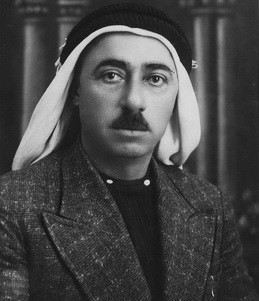 W
WAbd al-Rahim al-Hajj Muhammad, also known by his kunya Abu Kamal, was a prominent Palestinian Arab commander of rebel forces during the 1936–39 Arab revolt against British Mandate rule and increased Jewish settlement in Palestine. Most of his activities were based in the areas of Tulkarm, Nablus and Jenin. In September 1938, he became the official General Commander of the Revolt, although he shared the post in rotation with Arif Abd al-Raziq. In February 1939, al-Hajj Muhammad was given sole title to the post by the revolt's political leadership, but was killed the following month in a firefight with British forces.
 W
WFaras Hamdan was an Israeli Arab politician who served as a member of the Knesset for the Agriculture and Development party between 1951 and 1959.
 W
WJamal al-Husayni (1894-1982) was born in Jerusalem and was a member of the highly influential and respected Husayni family.
 W
WMusa Kazim Pasha al-Husayni held a series of senior posts in the Ottoman administration. He belonged to the prominent al-Husayni family and was mayor of Jerusalem (1918–1920). He was dismissed as mayor by the British authorities and became head of the nationalist Executive Committee of the Palestine Arab Congress from 1922 until 1934. His death was believed to have been caused by injuries received during an anti-British demonstration.
 W
WFahmi Bey al-Husseini was the mayor of Gaza, his hometown, from 1928 to 1939 while Palestine was under the British rule.
 W
WMohammed Amin al-Husseini was a Palestinian Arab nationalist and Muslim leader in Mandatory Palestine.
 W
WRashid al-Haj Ibrahim (1889–1953) was a Palestinian Arab banker and a leader of the Independence Party of Palestine (al-Istiqlal). He was one of the most influential Arab leaders of Haifa in the first half of the 20th century and played a leading role in both the 1936–39 Arab revolt and the 1948 Battle of Haifa.
 W
WIssa Daoud El-Issa was a Palestinian Christian poet and journalist. With his cousin Yousef El-Issa, he founded and edited the biweekly newspaper Filastin in 1911, based in his hometown of Jaffa. Filastin became one of the most prominent and long running in the country at the time, and was dedicated to the cause of the Arab Orthodox in their struggle with the Greek-Orthodox Patriarchate in Jerusalem. The newspaper was the country's fiercest and most consistent critic of the Zionist movement, denouncing it as a threat to Palestine's Arab population. It helped shape Palestinian identity and was shut down several times by the Ottoman and British authorities.
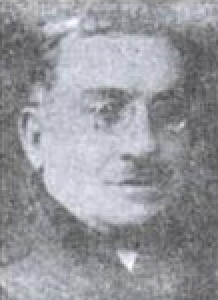 W
WYousef Abdullah El-Issa was a Palestinian journalist. He established the Filastin newspaper with his cousin Issa El-Issa in 1911, based in his hometown of Jaffa. Filastin became one of the most prominent and long running in the country at the time, was dedicated to Arab Nationalism and the cause of the Arab Orthodox in their struggle with the Greek-Orthodox Patriarchate in Jerusalem. They were passionately opposed to Zionism and Jewish immigration to Palestine. He has been described by a researcher to be "a founder of modern journalism in Palestine".
 W
WAmin-Salim Jarjora was an Israeli Arab politician who served as a member of the Knesset for the Democratic List of Nazareth between 1949 and 1951.
 W
WWasif Jawhariyyeh was a composer, oud player, poet and chronicler. He is known for his memoirs, The Diaries of Wasif Jawhariyyeh, that spans over six decades from 1904 to 1968, covering Jerusalem's turbulent modern history, including four regimes and five wars.
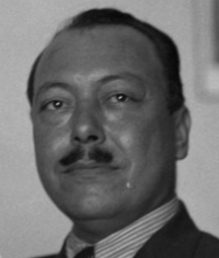 W
WHusayn Fakhri al-Khalidi was mayor of Jerusalem from 1934 to 1937.
 W
WMohammed Miari is an Israeli Arab former politician who headed the Progressive List for Peace during the 1980s and early 1990s.
 W
WMuhammad Taqi al-Din bin Ibrahim bin Mustafah bin Ismail bin Yusuf al-Nabhani was an Islamic scholar from Jerusalem who founded the Islamist political party Hizb ut-Tahrir.
 W
WElias Nakhleh was an Israeli Arab politician who served as a member of the Knesset between 1959 and 1974.
 W
WRaghib al-Nashashibi (1881–1951), CBE (hon), was a wealthy landowner and public figure during the Ottoman Empire, the British Mandate and the Jordanian administration. He was a member of the Nashashibi clan, one of the most influential families in Palestine, and mayor of Jerusalem from 1920 to 1934.
 W
WFawzi al-Qawuqji was a leading Arab nationalist military figure in the interwar period, The British military were impressed by his military acumen when he served briefly in Palestine in 1936 fighting the British Mandatory suppression of the Palestinian Revolt. A political decision by the British enabled him to flee the country in 1937. He was based in Nazi Germany during World War II, and served as the Arab Liberation Army (ALA) field commander during the 1948 Palestine War.
 W
WKassim al-Rimawi was the 25th Prime Minister of Jordan from 3 July 1980 to 28 August 1980. He was born in Beit Rima under Occupied Enemy Territory Administration.28 January 1962 to 13 October 1962 - Minister of Agriculture and Construction. 2 December 1962 to 27 March 1963 - Minister of Agriculture. 31 July 1965 to 23 December 1966 - Minister of Interior and by urban and rural affairs. 22 December 1966 to 4 March 1967 - Minister of Interior and by urban and rural affairs. 27 June to 15 September 1970 - Minister of Interior and by urban and rural affairs. 19 December 1979 to 3 July 1980 - Minister of Agriculture.
 W
WSaid al-Sabeh also spelled Said al-Sabi was a Palestinian politician.
 W
WKhalil al-Sakakini was a Palestinian Orthodox Christian teacher, scholar, poet, and Arab nationalist.
 W
WHasan Salama or Hassan Salameh was a commander of the Palestinian Holy War Army in the 1948 Palestine War along with Abd al-Qadir al-Husayni.
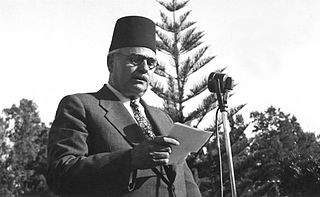 W
WRushdi Sa'id Shawwa Bey was the mayor of Gaza from 1939 to 1952. He was born in his father’s house in the al-Turukman section of the Shuja'iyya neighborhood. His mother, Hafiza Sha’ath from Beersheba, came from a major tribe in that area. Her brother, Tajuddin Sha'ath, was the head of the tribe and a former mayor of Beersheba.
 W
WHajj Sa'id al-Shawwa was a Palestinian Arab politician and the first mayor of Gaza, serving from 1906 to 1917. He was also one of the most influential members of the Supreme Muslim Council from 1921 until his death. He was an opponent of British mandatory rule in Palestine, supporting the Ottomans during World War I and later the nationalist Grand Mufti of Jerusalem, Amin al-Husayni.
 W
WMuhammad Rafiq al-Tamimi was a Palestinian Arab educator and political figure in the 20th century. He was appointed to the Arab Higher Committee in 1945 and was the chairman of the Palestinian Arab paramilitary scout movement, al-Najjada (1945–47).
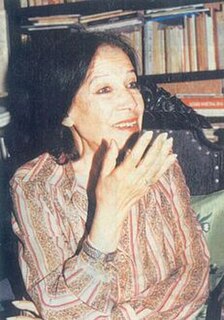 W
WFadwa Tuqan, was a Palestinian poet known for her representations of resistance to Israeli occupation in contemporary Arab poetry. Sometimes, she is referred to as the "Poet of Palestine".
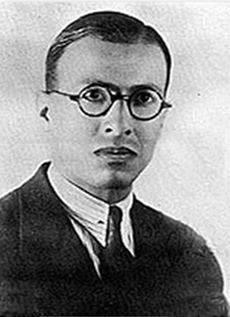 W
WIbrahim Abd al-Fattah Tuqan was a Palestinian nationalist poet whose work rallied Arabs during their revolt against the British mandate. Tuqan was born in Nablus, Ottoman empire. He was the brother of poet Fadwa Tuqan and he tutored and influenced her to write poetry. Ibrahim belonged to the prominent Tuqan family that governed Nablus during the 18th and 19th centuries.
 W
WAbd el-Aziz el-Zoubi was an Israeli Arab politician who served as a member of the Knesset for Mapam and the Alignment from 1965 until his death in 1974. When appointed Deputy Minister of Health on 24 May 1971, he became the first non-Jewish member of an Israeli government.
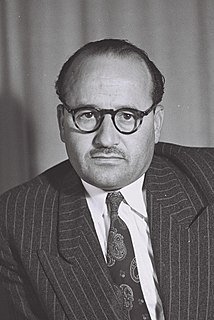 W
WSeif el-Din el-Zoubi was an Israeli-Arab politician.